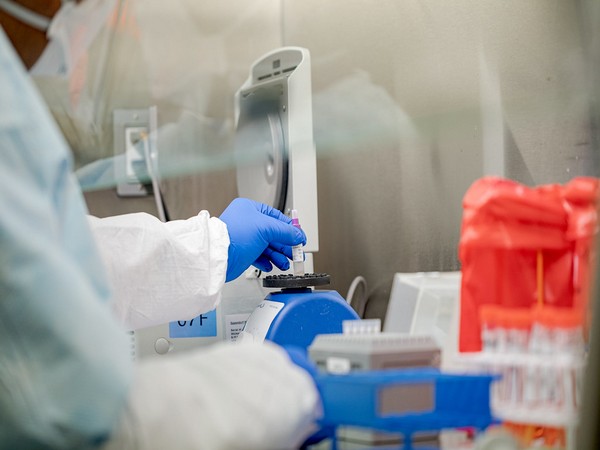Bangladesh to set up more South Korean-style kiosks to intensify COVID-19 testing
The 'wisks' are sanitized glass cabins from where medical technologists or healthcare professionals with protective gears collect throat swabs of people who stand or sit outside while one health worker with extra protection requires to remain outside during sample collections. "We see huge demands for kiosks as three private organisations are now collecting samples installing booths at key coronavirus hotspots,” DGHS additional director general Nasima Sultana said.

- Country:
- Bangladesh
Bangladesh on Saturday decided expansion of South Korean-style kiosks to collect samples for COVID-19 testing by engaging non-government or private organisations to intensify coronavirus testing. Directorate General of Health Services (DGHS) said the South Korean approach called Walk-In Sample Kiosk (WISK) appeared safe and effective in collecting samples as the makeshift booths created scopes for COVID-19 suspects to be tested avoiding hassles and saving time. The 'wisks' are sanitized glass cabins from where medical technologists or healthcare professionals with protective gears collect throat swabs of people who stand or sit outside while one health worker with extra protection requires to remain outside during sample collections.
"We see huge demands for kiosks as three private organisations are now collecting samples installing booths at key coronavirus hotspots,” DGHS additional director general Nasima Sultana said. They are operating in capital Dhaka, Narayanganj on the outskirts of the capital and southeastern port city of Chattogram.
Non-government JKG Health Care pioneered the initiative, Sultana said. BRAC and Digital Healthcare Solution are two other NGOs to extend services in collecting samples. She said the three organisations were currently extending the service free of cost but several other private organizations now applied to DGHS seeking to replicate the system under payment system.
"We are reviewing their proposals as we plan to expand the testing facilities engaging the non-government or private sector," Sultana said. The first two sample collection booths or wisks were set up in Narayanganj on April 8.
"The booth model is safe for health workers and the people want to be tested as well . . . it became popular as the people are getting the service almost at their doorsteps," Sultana said. JKG Health Care convenor Sabrina Arif Chowdhury said currently 44 wisks of theirs were operating with 4,00 trained health workers in Dhaka and Narayanganj, following a South Korean model, now being replicated in several countries.
“We are collecting 300 to 400 samples in these booths everyday as a large of number of people with COVID-19 symptoms queue up daily,” she said, adding until now none of their ‘wisk’ workers were infected due to adequate precautionary measures. BRAC’s associate director for Health, Nutrition and Population Programme Morsheda Chowdhury said their organisation so far set up 49 walk-in kiosks in Dhaka, Narayanganj and Chattogram.
“We will set up 100 walk-in kiosks in COVID-19 vulnerable regions in the country to supplement government efforts expedite and scale up testing capacity,” Morsheda said. She said their organisation has earmarked 19 COVID-19 hotspots across the county to install the booths but half of the kiosks would be in the capital alone. “In a densely populated country like Bangladesh, kiosks are crucial to test the suspects with lesser risks of spread of the contamination,” she said. Bangladesh on Saturday reported 3,240 new cases of COVID-19, bringing the tally of infections to 1,08,775. The death toll climbed to 1,425 after 37 new fatalities were registered on Saturday, according to the health directorate.
Another 1,048 COVID-19 patients recovered at home and in hospital care in the same period, raising the total to 43,993, Sultana said in a media briefing. The rate of recovery from the disease currently stands at 40.44 per cent, while the mortality rate is 1.31 per cent, according to government data.
(This story has not been edited by Devdiscourse staff and is auto-generated from a syndicated feed.)
ALSO READ
Ten years after South Korean ferry disaster, mothers express their grief on stage
Baise Embraces Rural Revitalization with Growing Mango Industry
Israel says it is closing its airspace as it braces for an Iranian drone attack
RR brace for Narine spin treat as KKR eye top spot
Azad urges National Conference to embrace new leadership and progress beyond Sheikh Abdullah's legacy










